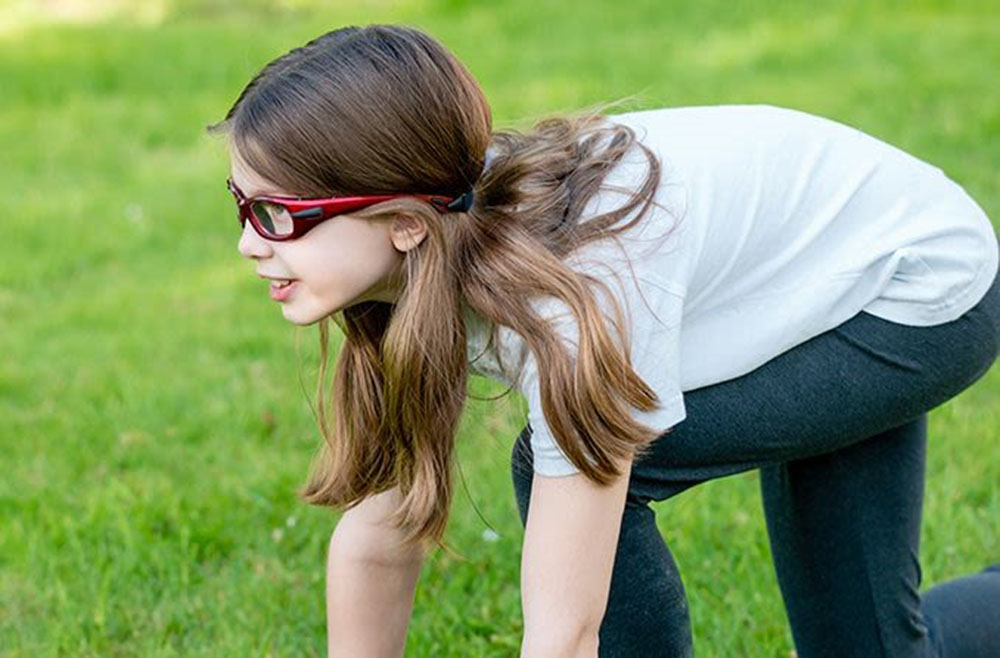If your child needs prescription eyeglasses, keeping his or her eyes safe should be your first priority. Glasses with polycarbonate lenses offer the highest degree of protection to keep your child's eyes out of harm's way while providing clear, comfortable vision.
The polycarbonate material used for eyeglass lenses was developed by the aerospace industry for use in helmet visors worn by astronauts. Today, because of its lightweight and protective features, polycarbonate is used for a wide variety of products including: motorcycle windshields, luggage, "bulletproof glass," riot shields used by police, swimming goggles and diving masks, and safety glasses.
Polycarbonate eyeglass lenses are 10 times more impact-resistant than glass or regular plastic lenses, and they exceed the FDA's impact resistance requirements by more than 40 times.
For these reasons, you can rest easy knowing your child's eyes are safe behind polycarbonate lenses.
Tough, thin, lightweight polycarbonate lenses
Polycarbonate lenses help protect your child's vision by holding up to rough-and-tumble play or sports without cracking or shattering. Many eye care practitioners insist on polycarbonate lenses for children's eyeglasses for safety reasons.
Polycarbonate lenses offer other benefits as well. The material is lighter than standard plastic or glass, which makes eyeglasses with polycarbonate lenses more comfortable to wear and less likely to slide down your child's nose.
Polycarbonate lenses also are about 20 percent thinner than standard plastic or glass lenses, so they are a good choice for anyone who wants slimmer, more attractive lenses.
 UV and blue light protection
UV and blue light protection
Glasses with polycarbonate lenses also protect your child's eyes from harmful ultraviolet (UV) radiation. The polycarbonate material is a natural UV filter, blocking over 99 percent of the sun's damaging UV rays.
This is particularly important for children's eyewear, because kids typically spend more time outdoors than adults. Researchers believe that up to 50 percent of a person's lifetime UV exposure takes place by age 18. And overexposure to UV rays has been associated with cataracts, macular degeneration and other eye problems later in life.
It's also very important to protect your child's eyes from high-energy visible (HEV) light, also known as blue light. Though more research is needed to determine how much blue light is too much, it's prudent to choose eyeglasses for children that filter not only UV rays, but blue light as well.
A convenient, cost-effective option is polycarbonate bluecut lenses or polycarbonate photochromic lenses, which can provide all-round protection to your kid’s eyes at all times. Please click into https://www.universeoptical.com/polycarbonate-product/ to get more information or contact us directly, we are always reliable to help you with a best choice for lenses.





